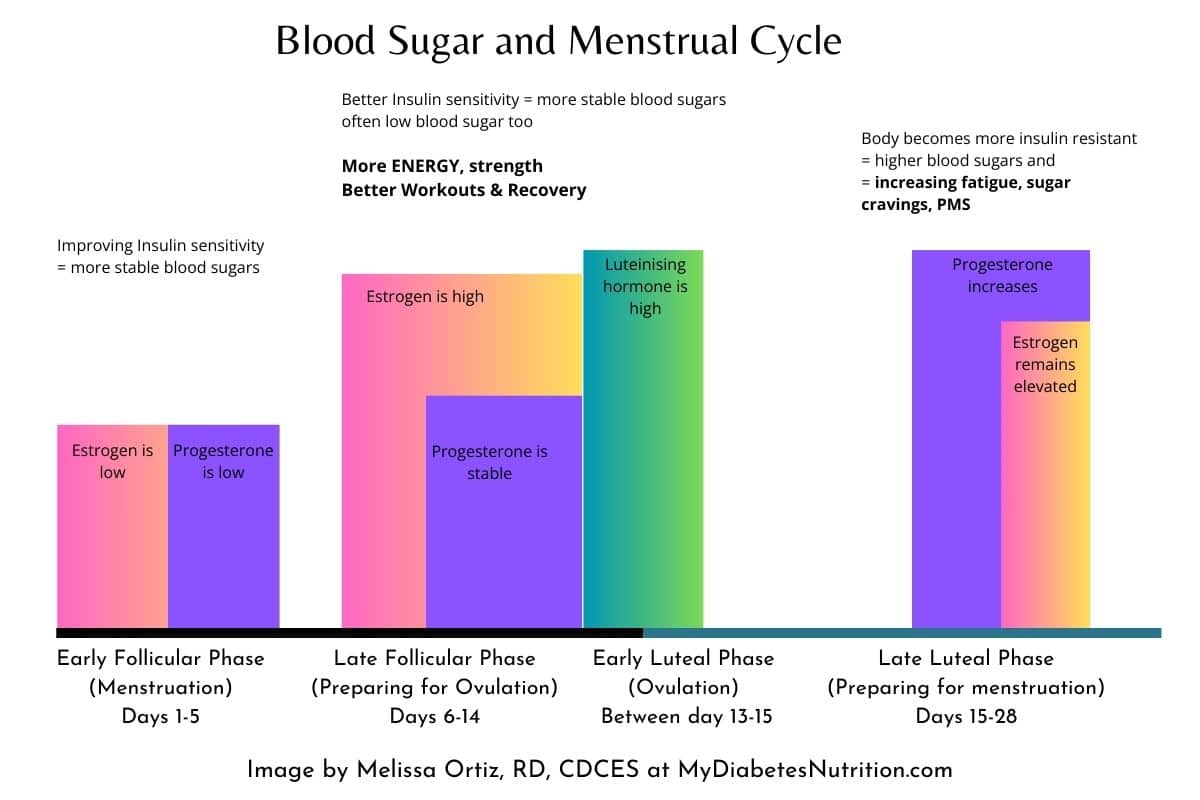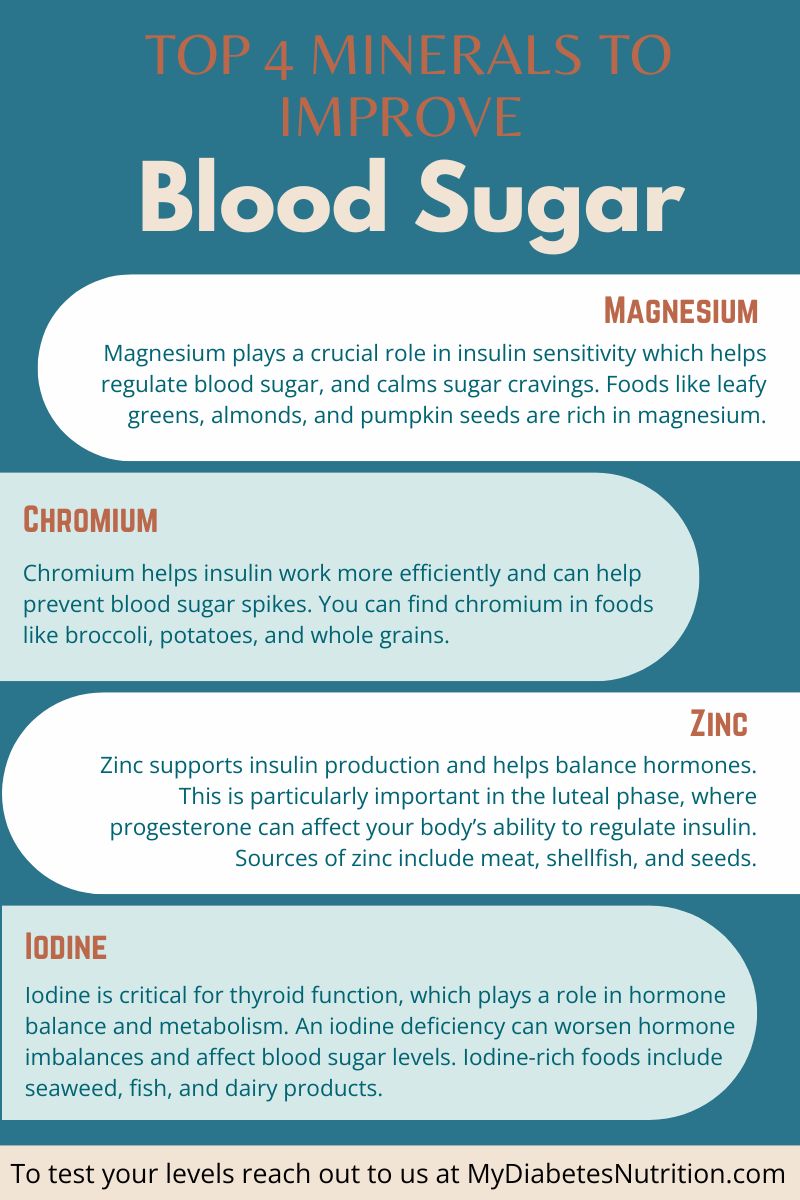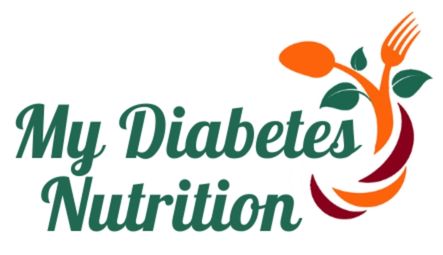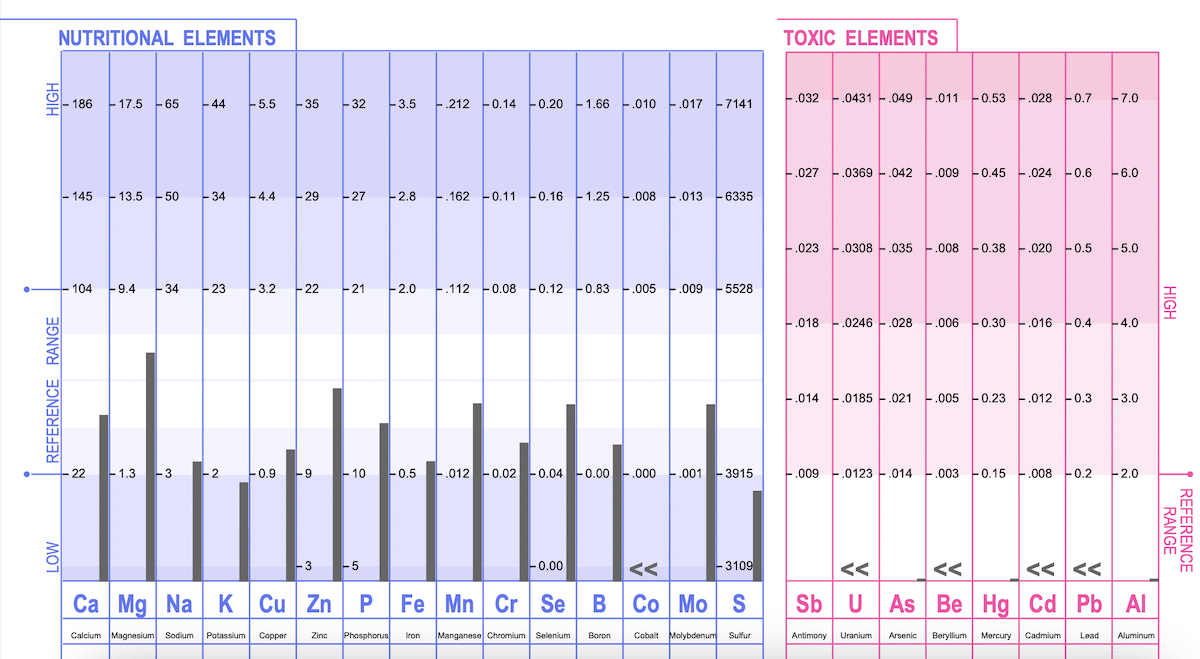Can Your Period Affect Your Blood Sugar? Understanding the Link Between Blood Sugar and Hormones
The menstrual cycle impacts so many aspects of a woman’s health, including blood sugar levels, which is medically known as blood glucose levels. If you’ve ever noticed changes in your blood sugar during different stages of your menstrual cycle, you’re not alone. Hormonal fluctuations and mineral imbalances throughout the month can have a big effect on how your body handles blood sugar, potentially causing spikes, dips, and even cravings. Let’s dive into the question that got you here – Can your period affect your blood sugar? and explore ways to improve blood sugar stability throughout the month.
Blood Sugar and the Menstrual Cycle
The menstrual cycle affects much more than just your period. It can influence blood sugar, mineral balance, energy levels, appetite, sleep quality, and how you feel during exercise. These changes are driven by hormonal fluctuations that happen throughout the four phases of your cycle: the early follicular phase, late follicular phase, ovulation, and luteal phase.
Research shows that the average duration of a menstrual cycle lasts around 28 days with other menstrual cycle lengths between 25 to 30 days, measured from the day your period begins to the day before your next one starts. However, everyone’s body is different, which is essential to remember when discussing the menstrual cycle.
How does your period affect your blood sugar?

Disclosure: As a Fullscript & Amazon Associate I earn from qualifying purchases at no additional cost to you if you make a purchase through my links. Rest assured, I only recommend products that I believe in, have used myself, and that could support your health and wellness goals.
Early Follicular Phase (Menstrual Phase: Days 1-5)
During menstruation, both estrogen and progesterone are at their lowest levels. This drop in hormones tends to improve insulin sensitivity, meaning your blood sugar may be more stable or even lower than usual. Many women also experience lower energy and increased fatigue as the body focuses on shedding the uterine lining.
- Blood Sugar: Lower and more stable.
- Energy: Often low due to hormone drop.
- Appetite: You may feel more in tune with hunger cues, but overall appetite could be lower than in other phases.
- Sleep: Disrupted sleep can occur due to cramps or discomfort.
Key Focus Areas:
- Food: Eat nutrient-dense, iron-rich foods like leafy greens, beans, and protein to replenish what you lose through menstruation. Balance your meals with healthy fats, protein, and slow-digesting carbs to keep your energy stable. Include a mineral-rich supplement to boost hydration and help replenish mineral loss due to the stress and depletion we go through during menses.
- Sleep & Rest: Fatigue is common, so prioritize rest and ensure you’re getting plenty of sleep. This is also a great time to focus on gentle self-care.
- Exercise: Opt for low-intensity workouts like walking, yoga, or light strength training. Listen to your body and don’t push yourself too hard during this phase.
Late Follicular Phase (Days 6-14)
As the body prepares for ovulation, estrogen levels begin to rise, which helps insulin work more efficiently. This means better blood sugar control and a potential energy boost. However, as estrogen rises toward ovulation, some women may begin to experience cravings, especially for sugar.
- Blood Sugar: Stable, with improved insulin sensitivity.
- Energy: Increases as estrogen rises, making exercise feel easier you will recover more quickly than during the luteal phase.
- Appetite: Mild cravings may appear as ovulation approaches, especially for sweet foods.
- Sleep: Sleep typically improves as hormone levels balance out during this phase.
Key Focus Areas:
- Food: Focus on fiber-rich foods like whole grains, vegetables, and fruits to support stable blood sugar. Incorporate healthy fats like avocado and nuts to keep cravings in check.
- Energy & Exercise: As estrogen increases, so does your energy. This is the time when exercising feels easier and you recover more quickly. Take advantage of this by increasing the intensity of your workouts—strength training, HIIT, or cardio will feel especially good.
- Sleep & Rest: Your energy is high, but maintaining good sleep habits is important. Stick to a consistent routine to support overall recovery.
Early Luteal Phase (Ovulation: Around Day 14)
During ovulation, estrogen and luteinizing hormone peak, and insulin sensitivity is at its highest. Blood sugar levels are usually the most stable, and you might notice a surge of energy, strength, mental focus, and overall well-being. This is a great time for high-intensity workouts as your body recovers quickly.
- Blood Sugar: Very stable.
- Energy: High energy, increased strength, and better exercise performance.
- Appetite: Cravings may continue but are often balanced by higher energy levels.
- Sleep: Sleep quality tends to be optimal during this time.
Key Focus Areas:
- Food: Maintain balanced meals to support your body’s energy needs. Eating a variety of lean proteins, healthy fats, and fiber-rich carbs will keep you feeling energized.
- Energy & Exercise: You’re likely to experience a burst of energy, strength, and endurance, making it a great time to push harder in your workouts. If you’ve been wanting to try a challenging class or increase your weights, now is the time.
- Sleep: Keep your sleep consistent to maintain energy levels. If you feel extra alert, winding down before bed with relaxation techniques can help ensure a good night’s sleep.
Late Luteal Phase (Days 15-28)
As the luteal phase progresses, estrogen stays elevated while progesterone rises sharply to prepare the body for potential pregnancy. This hormonal shift decreases insulin sensitivity, making blood sugar harder to control and increasing fatigue. It’s also when many women experience PMS symptoms like bloating, mood swings, cravings, and sore breasts.
- Blood Sugar: More fluctuations and potential spikes due to insulin resistance.
- Energy: Decreases as progesterone rises, leaving you more fatigued.
- Appetite: Cravings, especially for sweets and carbs, intensify as your body seeks quick energy.
- Sleep: Hormonal changes can make it harder to fall or stay asleep, leading to more restless nights.
Key Focus Areas:
- Food: Support your blood sugar by eating small, frequent meals rich in protein and healthy fats. Foods high in magnesium, like dark chocolate and nuts, can help ease PMS symptoms and reduce cravings.
- Exercise: Progesterone affects your aerobic capacity, and you may feel more tired or find exercise more difficult. This is the time to focus on lower-intensity workouts, such as walking, stretching, and yoga. Active recovery is key—think of this as a restorative phase.
- Rest & Sleep: Prioritize sleep, as elevated progesterone can sometimes make rest more difficult. Wind down earlier, incorporate relaxing bedtime rituals, and aim for 7-8 hours of rest. I love using Night Time Magnesium Lotion before bed, it provides a quick calming effect and helps me and many of my clients sleep longer and deeper through the night.
- Symptoms: PMS symptoms can be frustrating. Focus on stress management through meditation, deep breathing, or gentle movement to keep your mood and energy more balanced.
If pregnancy does not occur, hormone levels will drop, leading to menstruation, and the cycle will begin again.
Book a Session with a
Nutrition & Diabetes Specialist
Get your personalized plan
That suits YOUR needs during menstruation and BEYOND.
Sign me up!Diabetes and Periods
If you have diabetes, managing blood sugar and menstrual cycle can be a challenge. Blood sugar levels tend to fluctuate more during the luteal phase when progesterone causes insulin resistance. Many women with diabetes notice that they need to adjust their insulin levels, the foods they eat, and exercise during this time to maintain better control.
Women with type 1 diabetes may experience delayed menstruation/ irregular periods, early menopause, and higher risks of complications like stillbirth.
Those with type 2 diabetes often face heavier, longer periods and a greater chance of developing conditions like Polycystic Ovarian Syndrome ( PCOS ) and uterine fibroids.
Can high blood sugar cause irregular periods?
Yes, not only can your period affect your blood sugar, but it can go the other way around! High blood sugar can interfere with normal hormone function and cause irregular or missed periods, especially in women with diabetes. Poor blood sugar control may impact ovulation, leading to longer or shorter cycles.
Low blood sugar on your period
For some women, low blood sugar during their period is also a concern, particularly during the menstrual and follicular phases when insulin sensitivity is higher. If you’re prone to hypoglycemia (low blood sugar), it’s important to be extra mindful of your blood sugar levels during these phases and adjust your carbohydrate and protein intake or insulin accordingly.
Which hormone raises blood sugar?
The hormone that raises your blood sugar is glucagon. Produced by the alpha cells in the pancreas, glucagon works with other hormones to help regulate blood sugar levels. When blood sugar drops too low, glucagon steps in to raise it.
Which hormone lowers blood sugar?
The hormone that lowers blood sugar is insulin. Insulin helps cells absorb glucose from the blood, allowing muscles, fat, and the liver to use glucose for energy or store it as fat when needed.
Why do I crave sugar on my period?
One of the most common challenges during the luteal phase is sugar cravings. Hormonal fluctuations—especially increased progesterone—can cause a dip in serotonin levels (a natural mood booster), leading to cravings for sweets and carbs. It’s your body’s way of seeking a quick energy boost, but giving in to these cravings too often can cause blood sugar spikes and crashes.
Top 4 Minerals to Improve Blood Sugar Stability
To help manage blood sugar fluctuations during your cycle, incorporating key minerals into your diet can make a big difference. Here are the top four minerals for blood sugar control:
- Magnesium
- Magnesium plays a crucial role in insulin sensitivity which helps regulate blood sugar, and calms sugar cravings.
- Foods like leafy greens, almonds, and pumpkin seeds are rich in magnesium. My favorite supplement for an added boost of magnesium when I know I am probably going to struggle with sleep is Night Time Magnesium – LOVE THIS stuff!
- Chromium
- Chromium helps insulin work more efficiently and can help prevent blood sugar spikes. You can find chromium in foods like broccoli, potatoes, and whole grains.
- Zinc
- Zinc supports insulin production and helps balance hormones. This is particularly important in the luteal phase, where progesterone can affect your body’s ability to regulate insulin. Sources of zinc include meat, shellfish, and seeds.
It is my experience that many women who struggle with irregular periods and/or Iron deficiencies have an Iron Recycling issue which goes along with abnormal levels of Zinc, Copper and other minerals, and blood values that we evaluate. If you think you might be struggling with Iron issues let’s chat! This evaluation goes beyond just looking at your Iron or Ferritin levels at the Dr’s office.
- Iodine
- Iodine is critical for thyroid function, which plays a role in hormone balance, metabolism and SO MUCH MORE. An iodine deficiency can worsen hormone imbalances and affect blood sugar levels. Iodine-rich foods include seaweed, fish, and dairy products.
If you struggle with fatigue, cold feet, weight loss resistance or you might already have a diagnosis such as hypothyroid I urge you to check out the book The Iodine Crisis by Lynne Farrow and then come back to me when you are ready to test your Iodine levels and prepare for an Iodine protocol! It is life-changing!!

Balancing Hormones and Blood Sugar
To keep blood sugar levels more stable throughout your menstrual cycle, it’s essential to focus on balancing your hormones. Here are a few ways to support your hormonal health and prevent blood sugar swings:
- Eat a Balanced Diet: Incorporate plenty of fiber, healthy fats, and protein to stabilize blood sugar. Cruciferous vegetables like broccoli and kale can help balance estrogen levels. Start the day with a high-protein meal (20-30 grams of protein), preferably within 60-90 minutes after waking up.
- Manage Stress: High cortisol levels from chronic stress can deplete essential minerals in the body and increase insulin resistance and lead to higher blood sugar. Incorporate stress-reducing activities like yoga, meditation, grounding, laying on an acupressure mat or deep breathing to lower cortisol levels.
- Get Enough Sleep: Aim for at least 7-8 hours of sleep per night to support blood sugar regulation. Poor sleep can increase hunger hormones and worsen cravings for sugar.
- Keep Track: Tracking your period ups and downs, including your mood changes, cravings, blood sugar, and temperature readings are all great for predicting how you might feel the next time around and help you prepare better.
Can Menstruation Cause High Blood Pressure?
Not only do hormonal changes during your period affect your blood sugar, but they can also affect your blood pressure. High blood pressure during your period can occur due to increased progesterone, which may cause fluid retention and elevate blood pressure. For women with diabetes, this fluctuation can be even more pronounced because blood sugar and blood pressure are closely linked.
To support healthy blood pressure levels, ensure your diet includes enough sodium and potassium. These minerals help maintain the fluid balance necessary for proper cell function.
It’s a misconception that “cutting out all sodium is te solution”. Many clients have shared that they were advised to eliminate salt entirely, even discarding all seasonings with salt in them. While this approach might be recommended for severe hypertension, it’s often an overreaction. Blood pressure issues are frequently tied to processed foods, high-fat diets, inactivity, and stress. In fact, some clients have been able to reduce or eliminate their need for medication simply by incorporating the right balance of sodium and potassium into their diet, alongside healthier lifestyle choices.
Conclusion
In conclusion, when you are wondering if your period affect your blood sugar, remember that hormonal fluctuations throughout the menstrual cycle have a significant impact on blood sugar. From the peaks of estrogen during ovulation to the progesterone-induced insulin resistance in the luteal phase, understanding how your cycle affects blood sugar can help you better manage your health. Incorporating key minerals like magnesium, zinc, iodine, and chromium, while maintaining a balanced diet and managing stress, can improve blood sugar stability and promote overall well-being to feel your best every day of the month!





